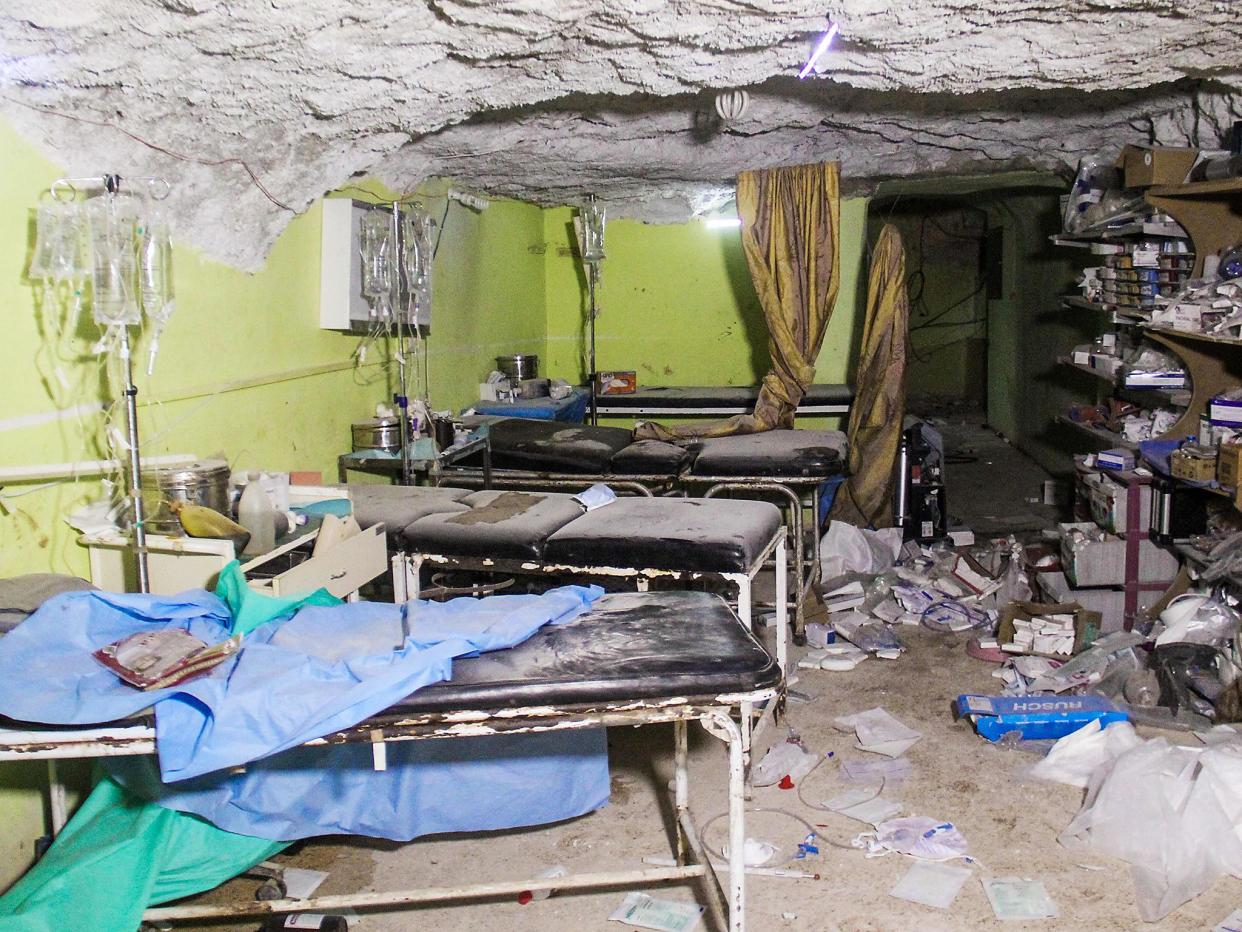Syria chemical attack: ‘incontrovertible evidence’ sarin gas used, OPCW says

"Incontrovertible" test results show that sarin gas or a chemically similar substance to the nerve agent was used in an incident which killed 86 people in a Syrian village earlier this month, the Organisation for the Prohibition of Chemical Weapons (OPCW) has said.
Sarin is a nerve agent banned under international law which attacks the body’s central nervous system, causing nausea, drooling, difficulty breathing, blurred vision and loss of control of bodily functions.
OPCW head Ahmet Uzumcu said in a statement on Wednesday that analysis of the bodies of three victims and seven survivors at four different laboratories indicated exposure to either sarin or a “sarin-like substance.”
“While further details of the laboratory analyses will follow, the analytical results already obtained are incontrovertible,“ Mr Uzumcu said.
Earlier testing on victims’ bodies by British scientists and the Turkish Health Ministry found evidence of exposure to both sarin and chlorine gas, which most of the international community believes occurred during a deliberate attack on the rebel-held village by the Syrian regime.
Damascus, along with its Russian and Iranian allies, has said that the April 4 casualties were caused when a conventional air strike on an al-Qaeda weapons depot nearby caused an explosion, releasing the deadly gases.
Syrian President Bashar al-Assad has repeatedly denied his government has any chemical weapons stocks after surrendering its chemical arsenal to an international watchdog in 2013 after the deaths of hundreds from sarin exposure in a rebel-held suburb of Damascus in 2013.
The opposition, however, has long accused the regime of holding back some of its supply.
The Organisation for the Prohibition of Chemical Weapons (OPCW) has said it believes Mr Assad's government is responsible for at least two chemical weapons attacks that have occurred in Syria since then - claims the president also denies.
On Wednesday the French foreign minister said that his country’s intelligence services have “proof” that the Syrian government was behind the alleged chemical weapons attack on a rebel village earlier this month.
“There is an investigation underway... it's a question of days and we will provide proof that the regime carried out these strikes,” Jean-Marc Ayrault told LCP television.
The US responded to the alleged attack by launching “warning shot” air strikes on a regime-controlled airbase near Homs a few days later which killed six Syrian servicemen. The offensive is to date the only direct action the US has taken against Mr Assad’s regime in more than six years of war.
The Syrian president has said that he will allow an “impartial” investigation into the April 4 incident as long as it is carried out by “unbiased countries” without a political agenda.
Mr Uzumcu said an OPCW fact-finding mission was ready to deploy to Syria if the security situation meant it was possible.
His team was continuing to conduct interviews and collect samples related to the attack, he added

 Yahoo News
Yahoo News 
